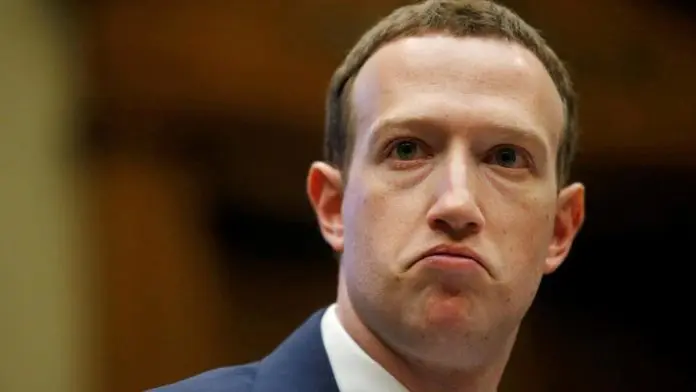Facebook has been the leader in the social media industry. It has grown every year since its start in 2004. But recently, the graph of its revenue has become flat. There has been a shift from facebook towards other social media platforms and reasons for this are many.
Facebook is being disliked widely all over the world. Involvement in various popular controversies might be one of the main reasons why so many people hate Facebook. Very few people in the age group of 18-25 are using facebook actively. Facebook is disliked by young people because it has no longer been young just like its founder Mark Zuckerberg.
Nearly half a billion accounts exist on fb, which are no longer being actively used. These accounts are just there for the sake of ease in surfing the internet. Some of us don’t want to lose our past selves, so we are preserving our timelines in the museum of Facebook.
Apart from this, TikTok has become one of the main sore bones for fb. TikTok is not using the already existing social network of various people to show the videos (as Facebook does). This means more and more people get to see interesting content. This is the main reason why TikTok has been rising and will continue to do so…for a while. Facebook was known for circulating content in various circles and thus keeping content somewhat less public. This had a certain advantage but now fb is in the process of getting rid of this and copying TikTok. There is no doubt in saying that TikTok is the competitor which has brought fb to dust.
Reasons for increasing dislike for Facebook
- Facebook doesn’t let us explore our own personalities due to its insistence on one-person-one-account.
- Most of us are at a stage where we want to know the reason for our existence.
- And facebook perfectly inhibits this thinking in so many ways.
- Facebook is infamous for selling user data to third parties without their consent.
- We hate fb because it is privacy invasive.
- It is nothing less than a spyware on our phone.
- The business is a cash generating machine.
- Many people also hate fb because it is highly addictive.
- Facebook designers designed it to keep us engaged for a long period of time.
- Facebook runs algorithms to push content to users. This means that we’re constantly being bombarded with notifications, posts, and ads. It’s easy to get stuck in the infinite (at least a very long) loop of continuous scrolling and meaninglessly liking and commenting.
- One more big problem with Facebook is the active involvement in spreading the fake news. Even the critical reports on some fake news turns out to be fake. So it is extremely difficult to find what is true and what is not.
- Facebook has lost its credibility as a source of information (although it might have never aimed to become one).
- Facebook is also known to be involved in manufacturing riots etc.
- Studies have been done in different parts of the world showing that new fake accounts were quickly pushed towards groups that promote hate speech, violence, and conspiracy.
We strongly believe that Facebook plays a role in what’s wrong with today’s world and that is the reason for the decline of Facebook. Karma pays after all.
Rise of Facebook, Twitter and TikTok
Facebook started in 2004 and by 2006, it became open to the general public. Facebook had already gathered twelve million active users by then. Soon it reached a benchmark of hundred million users.
Twitter was launched in 2006 and gained broader reach in 2009 when it was almost popularized by few TV anchors and politicians. However twitter got popular in 2009 because of the introduction of the retweet button, according to twitter.
Soon this feature was copied by fb in the form of a share button in posts. Facebook also changed the order of posts from chronology based to popularity based. Both facebook and twitter relied on social graphs. The larger the social graphs grew, the more attractive the network.
Therefore, Facebook and Twitter are social platforms and they have built all the algorithms around social graphs.
In contrast to this, TikTok is an entertainment platform. This difference is significant.
When we load TikTok, we’re presented with a short video, often well under a minute in length, filling our smartphone screen. The effectiveness of the TikTok experience is found in what it doesn’t require.
Unlike Twitter, TikTok doesn’t need a critical mass of famous or influential people to use it for its content to prove engaging and it also doesn’t rely on its users to manually share content with friends to surface compelling offerings. It assigns this responsibility to its scary-good recommendation algorithm.
The app can target a user’s interests with great accuracy in as little as forty minutes of observation. This rejection of the social-graph model has allowed TikTok to remove the barriers to entry that so effectively protected early social-media platforms like Facebook and Twitter. TikTok has easily beaten these social giants and this proves that more new and unimagined social giants will continue to emerge.
Only thing that is holding us back is the resistance in breaking some already existing constraint.

[…] the AI Day presentation was still underway, Musk wrote to his 107.4 million followers on Twitter (a Social media giant). “Naturally, there will be a catgirl version of our Optimus […]
[…] Also see: facebook-ejected-from-worlds-top-10-most-valuable-companies […]
[…] Also see: facebook-ejected-from-worlds-top-10-most-valuable-companies […]